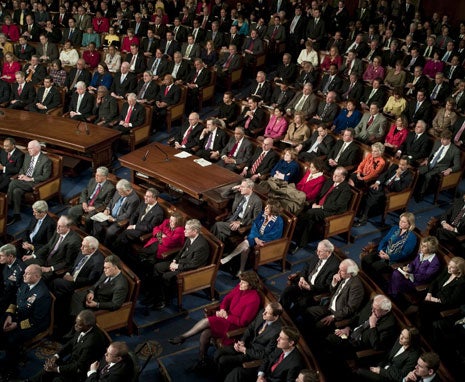As The Heritage Foundation’s Kim Holmes asks in The Washington Times, is our capacity to govern ourselves disappearing?
Today, the political process is jeered at as an exercise in futility—an endless, heated tangle of competing forces akin to Beltway traffic.
Still, the genius (and threat) of government is that it can manage to expand and overreach even while in a state of paralysis. Much of the 112th Congress was spent in unpopular impasse, and yet it carries a historic price tag. The federal government operates without a budget, with Congress’s state of gridlock protecting record deficit spending that is set to grow even more despite the new fiscal cliff deal.
While members of the legislative branch of government continue to argue about spending, the other branches are stepping into its role. This is even the case with some of the nation’s courts. In The Heritage Foundation’s Understanding America series, Robert Alt writes:
[O]ver time, the Supreme Court has grabbed power by declaring that “the federal judiciary is supreme in the exposition of the law of the Constitution.” The Supreme Court has even gone so far as to declare that its decisions that interpret the Constitution are the supreme law of the land.
Judicial activism undermines Americans’ ability to decide issues for themselves.
Of course, President Obama does his part as well. As Holmes points out: “He’s taken an oath to uphold and defend the Constitution and enforce our laws, not to disregard them or make them up. Yet he chooses not to enforce the Defense of Marriage Act or federal marijuana laws. And he enacts by executive order what he could not get in the Dream Act.”
Post-inauguration, we will likely see more of this. Obama’s unbending posture during the fiscal cliff negotiations reveals his determination to dig in on other issues.
What does the combination of Washington gridlock and debt-ridden overreach mean for the people’s right to choose how they are governed? What happens to the rule of law when the actions of some judges and bureaucrats help render the legislative process obsolete?
Stay tuned.
